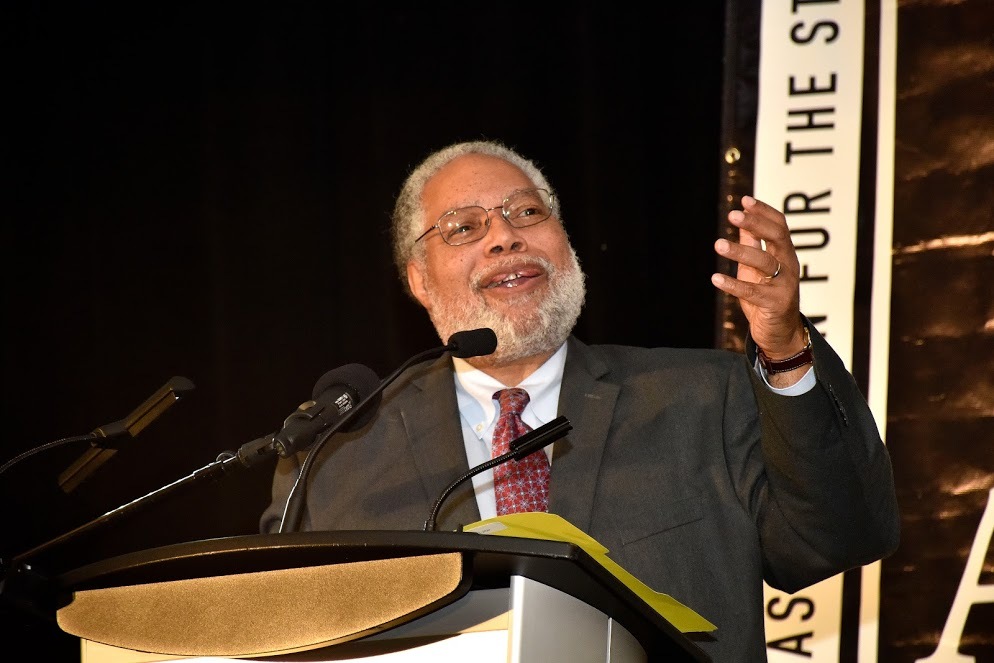[ad_1]
By Micha Green
AFRO D.C. Editor
[email protected]
Twenty-twenty is not only the start of a new decade and the year of clear vision, it is an important election season. And for that reason, the Association for the Study of African American Life and History (ASALH) is using 2020 to examine the background and power of the Black vote.
Also known as the creators of Black History Month, ASALH chose the theme “African Americans and the Vote,” as a means of not only studying, educating and sharing the history behind voting for people of color, it is also a rallying factor for Black people to know the importance of their voices in the upcoming election cycle. The upcoming election and the appeal to vote was at the forefront of ASALH’s annual Black History luncheon.

“What is our duty? To vote,” said Dr. Evelyn Brooks Higginbotham, ASALH national president in her welcoming remarks.
The importance of voting was emphasized throughout the entire event. There was a photo booth installation where guests could pose in front of the ASALH banner holding signs about voting. The signs had messages such as, “Vote! Your voice matters, Election 2020. #BlackVote2020” and “Honor our past, support our future. #WokeBlackVote.”
Each speaker and presenter also spoke about the importance of voting in terms of the Black community’s history and future.
“They fought for their freedom; it was not granted by Mr. Lincoln. They fought for their right to vote; it was not granted by Mr. Johnson,” said the Reverend William Lamar IV of Metropolitan A.M.E. Church in Northwest, Washington, D.C., in his invocation and grace.
Event honoree and keynote speaker Dr. Lonnie Bunch, secretary of the Smithsonian Institution, the first African American to serve in this position, also stressed the importance of the Black vote.
“Without the vote, we don’t have the voice,” he said.
The head of the Smithsonian acknowledged ASALH, founded by the “Father of Black History” Carter G. Woodson in 1915, for its contribution to Black history and its work in championing voting. Bunch thanked ASALH for reminding the nation that it “is made better by the African American experience all day every day.”
The award and keynote speech was followed by another special tradition within the history of the ASALH luncheon- the unveiling of the United States Postal Service’s new Black Heritage Stamp. This year’s Black Heritage Stamp featured veteran journalist Gwen Ifill, who died in 2016.
Michelle Norris, a good friend of Ms. Ifill, talked about how Gwen loved bringing people together and being a connector. So it is truly that Gwen Ifill is featured on a United States postage stage. Stamps, after all, are a way of bringing people together, of staying connected with family,” said Elliot Gruber, director of the National Postal Museum.
With more than one thousand people present, the end of the luncheon served as a push for people to join the organization as a means of knowing one’s history and pushing for a stronger future- particularly as it relates to voting.
“We have got to educate people why we need to vote and in order to do that you need to know your history,” said Barbara Spencer Dunn, ASALH’s Vice President of Membership.
For more information about ASALH or to join a local chapter, visit www.asalh.org.
[ad_2]
Source link
